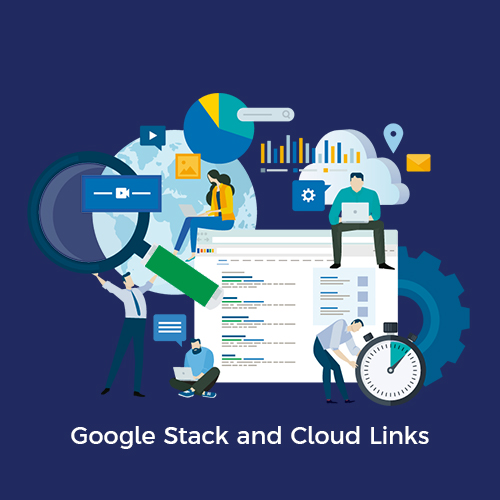SEO tutorial for beginners
SEO Tutorial for Beginners
If you’re new to the world of SEO, you may be feeling overwhelmed by all the information out there. Don’t worry – we’re here to help! In this SEO tutorial for beginners, we’ll break down the basics of search engine optimization and provide you with some actionable tips to get started.
What is SEO?
SEO, or search engine optimization, is the process of optimizing your website to improve its visibility and ranking on search engine results pages (SERPs). Essentially, SEO helps your site show up higher in search results when users search for relevant keywords.
On-Page SEO
On-page SEO refers to the optimization of individual web pages to rank higher and earn more relevant traffic in search engines. This includes optimizing content, meta tags, headings, images, and URLs. Here are some key on-page SEO elements to focus on:
1. Content: Create high-quality, relevant content that provides value to your audience. Use keywords strategically but avoid keyword stuffing.
2. Meta Tags: Optimize your title tags and meta descriptions to accurately describe each page’s content and encourage clicks.
3. Headings: Use H1, H2, and H3 tags to structure your content and make it easier for search engines to understand.
4. Images: Optimize image alt text and filenames to improve accessibility and boost SEO.
5. URLs: Keep URLs short, descriptive, and keyword-rich for better indexing and ranking.
Off-Page SEO
Off-page SEO refers to activities performed outside of your website to improve its rankings. This includes building backlinks from reputable sites, social media marketing, and influencer partnerships. Here are some off-page SEO strategies to consider:
1. Link Building: Earn backlinks from authoritative websites to boost your site’s credibility and authority.
2. Social Media: Share your content on social media platforms to increase visibility and drive traffic to your site.
3. Influencer Marketing: Partner with influencers in your niche to reach a larger audience and build brand awareness.
Technical SEO
Technical SEO focuses on the technical aspects of your website that affect its search engine visibility. This includes optimizing site speed, mobile responsiveness, and site structure. Here are some technical SEO tips for beginners:
1. Site Speed: Improve loading times by optimizing images, reducing server response times, and leveraging browser caching.
2. Mobile Responsiveness: Ensure your site is mobile-friendly to provide a seamless user experience across devices.
3. Site Structure: Organize your site’s navigation and internal linking structure for easy crawling and indexing by search engines.
In conclusion, SEO is a crucial aspect of digital marketing that can help drive organic traffic to your website. By focusing on on-page, off-page, and technical SEO strategies, beginners can improve their site’s visibility and ranking in search engine results. Remember to stay updated on the latest SEO trends and best practices to maintain a competitive edge online.
link building
Link building is an essential aspect of any successful SEO strategy. By obtaining high-quality links from reputable websites, you can improve your website’s authority and boost its ranking on search engine results pages. Here are some key points to keep in mind when it comes to link building:
Why is link building important?
Link building is crucial for improving your website’s visibility and credibility online. When other websites link back to your site, search engines view this as a vote of confidence in your content.
How can you build quality links?
- Create high-quality, engaging content that other websites will want to link to
- Reach out to relevant websites and offer to write guest posts or collaborate on content
- List your business in online directories and industry-specific websites
- Participate in industry forums and discussions, including links back to your website where appropriate
What are some common link building mistakes to avoid?
- Buying links from low-quality or spammy websites
- Using automated link-building tools or services
- Ignoring the importance of anchor text and link relevancy
- Neglecting internal linking within your own website
How long does it take to see results from link building?
Link building is a long-term strategy that requires patience and consistency. While some results may be seen relatively quickly, it can take several months to see significant improvements in your website’s ranking and traffic.

In conclusion, link building is a critical component of SEO that can greatly impact your website’s success. By focusing on building high-quality links from reputable sources, you can improve your website’s authority and drive more organic traffic.
onpage SEO
Onpage SEO: A Complete Guide
What is Onpage SEO?
Onpage SEO refers to the practice of optimizing individual web pages in order to rank higher and earn more relevant traffic in search engines. This involves optimizing both the content and HTML source code of a page.
Key Elements of Onpage SEO:
- Title tags
- Meta descriptions
- URL structure
- Headings (H1, H2, etc.)
- Keyword placement
- Image alt tags
- Internal linking
- Page load speed
FAQs About Onpage SEO:
- Why is onpage SEO important?
Onpage SEO is crucial for improving search engine rankings and driving organic traffic to your website. It helps search engines understand the content of your pages and serves as a roadmap for users.
- How can I optimize my page titles?
To optimize your page titles, make sure they are relevant to the content on the page, include targeted keywords, and are under 60 characters to ensure they display properly in search engine results.
- What is the significance of meta descriptions?
Meta descriptions provide a brief summary of the content on your page. They don’t directly impact rankings but can influence click-through rates, so it’s important to write compelling meta descriptions that entice users to click on your link.
- Is mobile optimization part of onpage SEO?
Yes, mobile optimization is a critical component of onpage SEO. With the majority of internet users accessing websites on mobile devices, it’s essential to ensure that your site is mobile-friendly and provides a seamless user experience across all devices.
By focusing on onpage SEO best practices, you can improve your website’s visibility in search engine results and attract more qualified leads to your site. Remember to regularly review and update your onpage SEO efforts to stay ahead of the competition and drive long-term success.
technical SEO
Technical SEO: A Comprehensive Guide
With the ever-evolving landscape of search engine optimization (SEO), it’s crucial for websites to prioritize technical SEO in order to improve their online visibility and rankings. Technical SEO refers to the optimization of a website’s infrastructure, making it easier for search engines to crawl and index its pages. In this article, we will delve into the importance of technical SEO and provide tips on how to optimize your website effectively.
Benefits of Technical SEO:
1. Improved Site Speed: By optimizing your website’s technical aspects such as server response time, image compression, Link building and code minification, you can significantly improve your site speed. Faster loading times not only enhance user experience but also positively impact your search engine rankings.
2. Enhanced Crawlability: Search engines use crawlers to navigate through websites and index their content. By implementing technical SEO best practices such as creating a sitemap, optimizing robots.txt file, and fixing broken links, you can ensure that search engine bots can easily crawl and index your website.
3. Mobile-Friendliness: With the increasing number of mobile users, having a mobile-friendly website is essential for SEO success. Implementing responsive web design, optimizing for mobile page speed, and addressing mobile usability issues are crucial aspects of technical SEO that can improve your site’s performance on mobile devices.
4. Schema Markup: Integrating schema markup into your website’s code helps search engines better understand your content and display rich snippets in search results. By incorporating structured data markup for products, events, reviews, and more, you can enhance your website’s visibility and click-through rates.
FAQs About Technical SEO:
Q: What are some common technical SEO issues?
A: Common technical SEO issues include slow site speed, duplicate content, broken links, improper URL structure, and missing meta tags.
Q: How can I improve my website’s site speed?
A: To improve site speed, consider optimizing images, leveraging browser caching, enabling compression, minimizing HTTP requests, and using a content delivery network (CDN).
Q: Why is mobile-friendliness important for SEO?
A: Google prioritizes mobile-friendly websites in search results, and having a responsive design ensures that your site is accessible and user-friendly across all devices.
In conclusion, investing in technical SEO is crucial for the long-term success of your website. By focusing on improving site speed, enhancing crawlability, optimizing for mobile, and utilizing schema markup, you can boost your search engine rankings and attract more organic traffic to your site. Stay tuned for more tips and strategies on mastering technical SEO for your online presence.
blackhatSEO
Blackhat SEO: What You Need to Know
Blackhat SEO refers to unethical practices used to manipulate search engine rankings and deceive users. These tactics violate search engine guidelines and can result in penalties or bans for websites that engage in them.
Common Blackhat SEO Techniques
Some common blackhat SEO techniques include:
- Keyword stuffing: Overloading a webpage with keywords to manipulate search engine rankings.
- Cloaking: Showing different content to search engines than to users.
- Link farming: Creating artificial links to manipulate link popularity.
- Doorway pages: Creating low-quality pages specifically for search engines.
Impact of Blackhat SEO
Using blackhat SEO techniques may provide short-term gains in search engine rankings, but the long-term consequences can be severe. Search engines are constantly improving their algorithms to detect and penalize websites using blackhat techniques.
How to Avoid Blackhat SEO
To avoid the risks associated with blackhat SEO, it’s important to focus on ethical SEO practices. Some tips to help you stay on the right side of search engine guidelines include:
- Create high-quality, relevant content for your website.
- Follow search engine guidelines for optimization.
- Build a strong backlink profile through natural means.
- Avoid tactics that manipulate search engine results.
FAQs About Blackhat SEO
What are the consequences of using blackhat SEO?
Using blackhat SEO can result in penalties or bans from search engines, leading to a loss of visibility and traffic for your website.
Is blackhat SEO worth the risk?
No, the short-term gains from blackhat SEO are not worth the long-term consequences of penalties or bans from search engines.
How can I recover from using blackhat SEO techniques?
If your website has been penalized for using blackhat SEO techniques, the best course of action is to remove the unethical practices and focus on building a reputable online presence through ethical SEO strategies.







